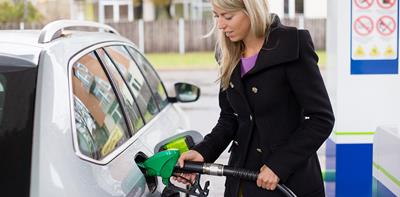
All vehicles registered in the UK are subject to Vehicle Excise Duty (VED), also known as car tax or road tax.
But the amount of tax you need to pay will vary significantly depending on the model of your car, its emissions and when it was first registered. Some vehicles qualify for exemptions but owners have to apply for these.
A vehicle kept off-road must also be taxed, unless it has a Statutory Off Road Notification (SORN).
What is a car’s registration date?
The registration date for your car is the date it was first allocated to an owner in the UK. It doesn’t change as the car moves between owners.
You’ll be able to find it on your car’s V5C registration document. Or you can simply go to the DVLA's 'get vehicle information' service and enter your registration.
How much do I pay?
There is a key date to bear in mind when it comes to car tax: the 1st April 2017.
Car tax for vehicles registered BEFORE 1st April 2017
Any vehicle registered after 1st March 2001 and before 1st April 2017 is subject to the old car tax rules. All cars were placed in a lettered band, based on their carbon dioxide emission levels.
Cars in band A emit less than 100g/km, and pay no car tax, while at the other end of the scale cars in band M emit over 255 g/km and paid £1,120 in the first year of ownership and then £600 a year after that[1].
These rates increase each year by the retail price index (RPI) measurement of inflation.
To find out exactly how much tax you should be paying, you can use your V5C reference number on the government website.
Note that these rules are for cars registered after 1st March 2001 and before 1st April 2017. If your car is older than this, then the rate of vehicle tax is based on engine size (unless it counts as a 'historic vehicle' - see below). Owners of cars with engines over 1,549 cc pay £280, while those with smaller engines pay £170.
Car tax for vehicles registered AFTER 1st April 2017
First year payments
Now only vehicles that emit no carbon dioxide at all are tax-free. All other vehicles then face a first-year car tax rate which based on the vehicle’s emission levels. These range from £10 for those that emit very little all the way up to £2,245 for those with the worst emission levels[2].
You have to pay a higher rate for diesel cars that do not meet the Real Driving Emissions 2 (RDE2) standard for nitrogen oxide emissions. You don’t need to worry about this if you’re buying a brand new car, as since January 2021, all new cars now have to be compliant with the standard. If you have an older car and aren’t sure if it’s compliant, then ask the manufacturer.
Second tax payment onwards
From the second year onwards, all petrol or diesel vehicles have a flat rate of £155 (based on a single 12 month payment), no matter what the emission levels are like.
As with first year payments, fully electric cars that emit no carbon dioxide are tax-free, while ‘alternative’ cars - hybrids, bioethanol and liquid petroleum gas – cost £145 to tax for 12 months.
There’s an additional cost to bear in mind if you have an expensive car. If the car costs more than £40,000, then you will have to pay an extra £335 charge each year for five years. Again, you don’t have to pay this if you have a zero emission vehicle.
Car tax exemptions
It’s not just vehicles with zero emissions that you don’t have to pay car tax on. ‘Historic vehicles’ - which are classed as those that are 40 years or older - are also exempt, while there’s no tax to pay on vehicles used by a disabled person (either as a driver or passenger) either[3].
In this case, although you won’t need to pay for tax, you will however need to apply for an exemption.
What happens to the car tax when I sell the car?
Car tax doesn’t move with the car when it’s sold. If you’re selling your car, you can claim a refund for any full months that are left. This should be issued automatically when you return the relevant documents to the DVLA after the sale.
If you are buying a new car, you will need to ensure that you have the car tax sorted before you drive it.
How do I pay for my car tax?
You can tax a car for either six or 12 months. If your tax is due to expire, you should receive a reminder that it’s nearly time to sort out your tax for another year.
There are a number of different ways that you can arrange your car tax. For example you can go to a Post Office, call the DVLA or do it all online through the official gov.uk website.
Go to Solved to read more about driving, the rules of the road and road safety.
You can find out more about our car insurance here.
[1] https://www.gov.uk/vehicle-tax-rate-tables/rates-for-cars-registered-on-or-after-1-march-2001
[2] https://www.gov.uk/vehicle-tax-rate-tables
[3] https://www.gov.uk/historic-vehicles/apply-for-vehicle-tax-exemption


